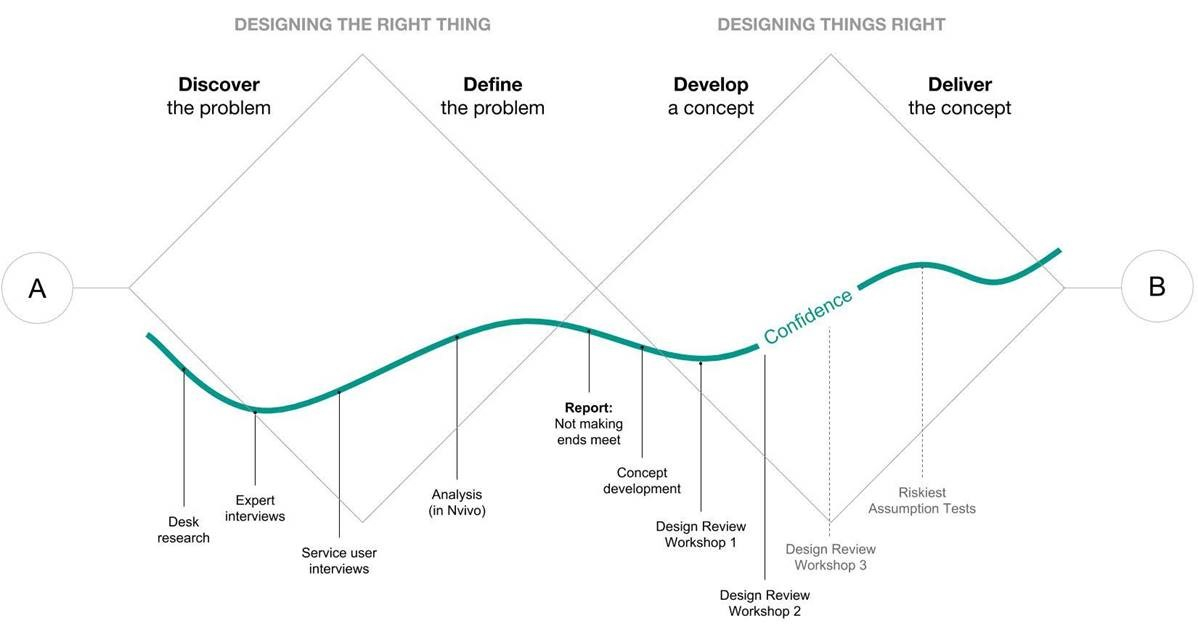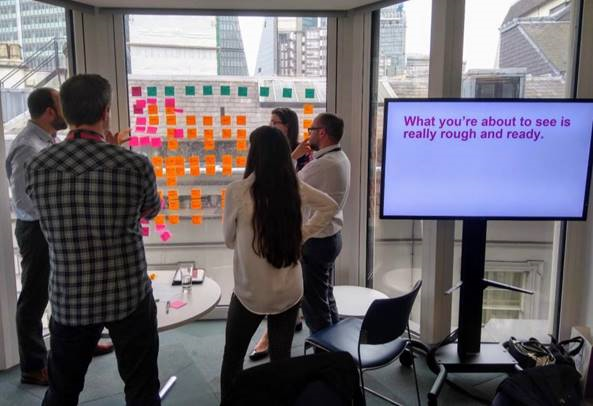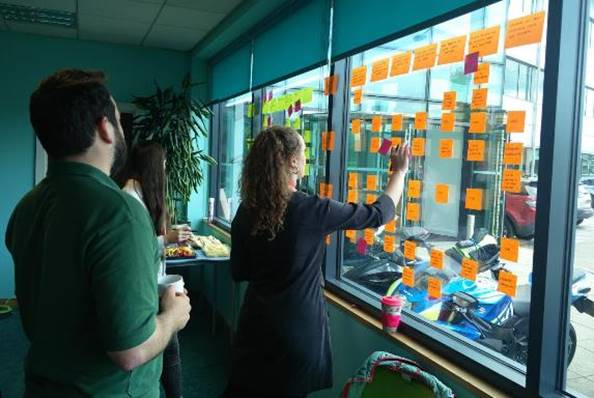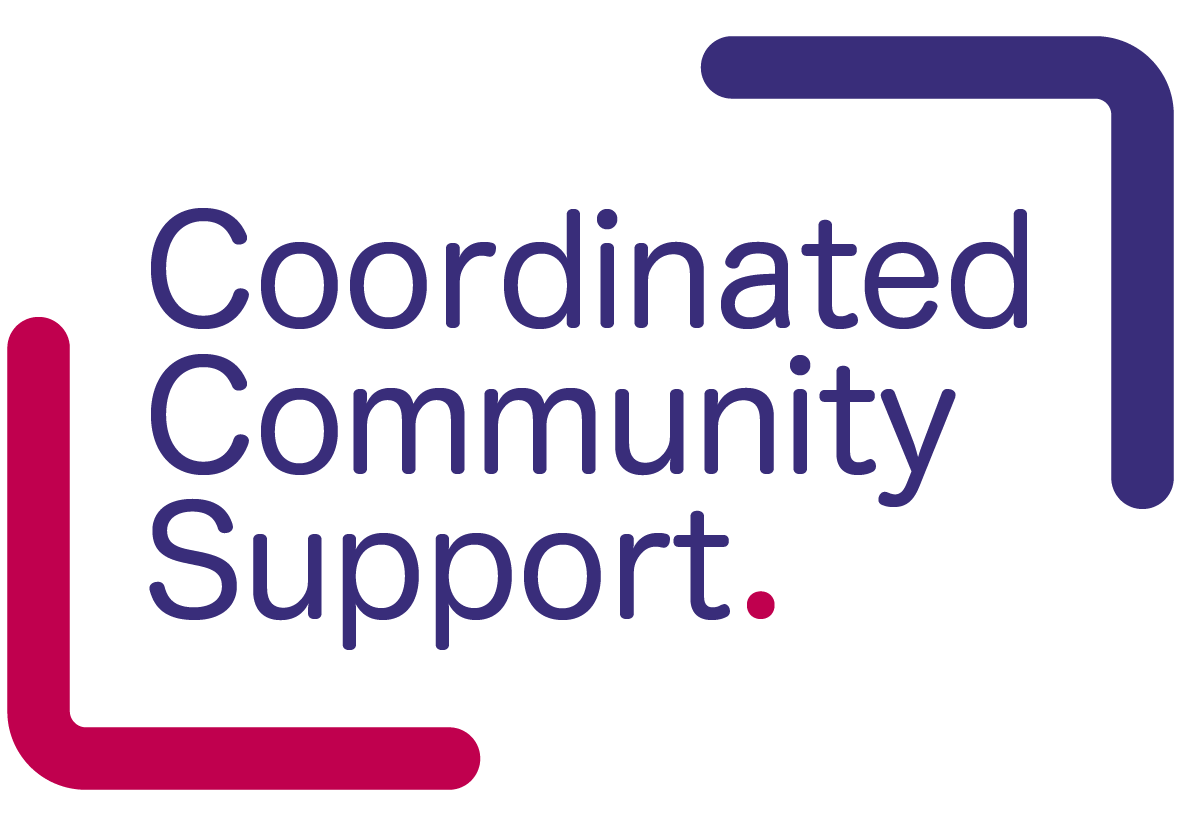Our approach to creating the Coordinated Community Support programme was based on the UK Design Council’s ‘Double Diamond. This involves four overarching phases of work (Discover, Define, Develop and Deliver). The diamonds highlight ‘divergent’ and ‘convergent’ phases – i.e. phases where opportunities are opened up, or narrowed down.
Our activities within these four phases are described above – along with an illustration of how they have helped us to gradually and systematically increase our confidence that we are solving a real problem, with a solution that is wanted, feasible and impactful.
Who have we engaged during discovery research and concept development?
- 42 expert interviews conducted with stakeholders in seven local authority areas, including Advice Centres, Children’s Centres, Credit Union, Food banks, Law Centres, Debt Advice services, Job Centre Plus, Domestic Violence services, and Local Welfare Assistance Schemes.
- 7 service user interviews – parents who have had to rely on crisis support from their local authority or local charitable organisations within the last six months.
- 33 stakeholders have offered feedback across two Design Review workshops – including funders, a national building society, a national energy supplier, the Local Government Association, and practitioners from national and local service providers.
How have we ensured that this project concept is wanted, feasible and impactful?
- The project concept has been developed on the basis of insights generated through significant ‘discovery research’, conducted with service users and local and national stakeholders through the “Not making ends meet” research.
- The key insights from the research and our project concept were then reviewed by local and national stakeholders during two workshops. To do this, we created a visual ‘service blueprint’ to communicate the concept’s key activities, actors, communications channels, policies and systems.

Participants were then facilitated to identify risky assumptions and recommend changes to the service blueprint. The concept has been iteratively updated in response to this feedback.

Design Review workshop London

Design Review Workshop Manchester
We used the learning from the design review workshops to develop later versions of the programme proposal.
Programme implementation
Once the programme proposal had been developed and funding for the four initial 3 year pilots, we moved on to selecting pilot sites. We selected these sites through first requesting responses to an expression of interest form for councils to tell us if they would be interested in participating, followed by interviews with a set of those councils to further explore how they would like to work to develop the pilots.
We selected Swansea, Tower Hamlets, Oldham and Norfolk for the pilot sites, and have since been working with them to develop their programmes of work. You can find out more about the work being undertaken in each of the areas here.
